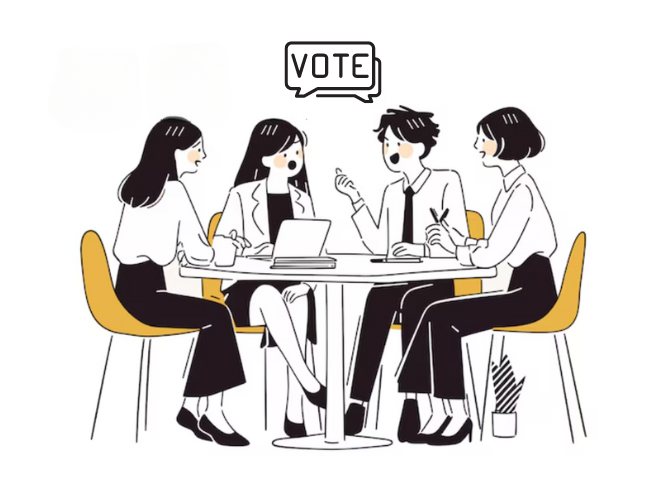 When deciding whether to hire a job candidate, employers often rely on more than background, experience, and skillsets. They also try to assess the job seeker’s personality to identify cultural adds and gain insight into a candidate’s work style.
When deciding whether to hire a job candidate, employers often rely on more than background, experience, and skillsets. They also try to assess the job seeker’s personality to identify cultural adds and gain insight into a candidate’s work style.
When evaluating a potential hire’s personality, businesses often utilize what is known as the five-factor model (FFM), which breaks personality down into five dimensions: (i) openness to experience, (ii) extraversion, (iii) agreeableness, (iv) conscientiousness, and (v) emotional stability.
These traits or personality dimensions are associated with a broader range of characteristics that organizations can use to determine whether an individual will be successful in a role. For instance, a low score on the emotional stability factor may indicate that a candidate is prone to experience dramatic shifts in mood and struggle to bounce back after stressful events.
In the thick of the Great Resignation, personality tests have become more important than ever. Employers need to determine if new hires will work well on a team, display resilience in the face of stressors, or be prone to jump ship. Despite their undeniable utility, the “Big Five” personality tests have several limitations that organizations must be aware of to avoid overestimating their predictive value or undermining efforts to create a diverse and inclusive workplace.
- There’s more to personality than the Big Five: Some experts argue that the FFM oversimplifies personality. In other words, they claim that there are additional aspects of personality that are not captured by the Big Five. For example, some researchers have argued for humility as a sixth trait. Others suggest there are ten or more distinct facets of personality. If these theorists are correct, then organizations that focus on the FFM might be missing out on essential aspects of personality that could help them predict how a candidate would perform on the job. While the final list of dimensions is yet to be decided, employers should remember that it likely will include more than the five characteristics.
- Personality can change over time: For a personality test to be useful for employers, the traits it measures must be relatively stable. A large body of research indicates that personality traits can and do change. For example, researchers have found that people tend to become more agreeable, conscientious, and emotionally stable as people get older. Moreover, some characteristics change as individuals enter new environments or acquire new responsibilities. For instance, one study found that changes in openness to experience can follow from upward job changes into managerial and professional positions. Organizations must take this into account when making hiring decisions based on personality assessments to avoid rejecting candidates whose personalities would grow to suit the job.
- Candidates may provide socially desirable responses: Even if the FFM addressed all personality characteristics, tests incorporating the model wouldn’t necessarily produce accurate results. This is because the procedures used to determine where individuals fall on the Big Five’s dimensions are vulnerable to bias. One of the more popular ways organizations assess personality is with self-report personality inventories, which ask respondents to indicate the degree to which they agree or disagree with a range of statements designed to capture different parts of the Big Five. For example, a personality inventory may ask whether an individual believes they are someone who “tends to be lazy,” “treats others with respect,” or “keeps their emotions under control.” The problem with these self-reported personality inventories is that they rely on questions that are likely to invoke what is known as the “social desirability bias,” which refers to the tendency of survey respondents to answer questions in a manner that will be viewed favorably by others. Since it is easy to determine how an employer would like candidates to respond (e.g., they won’t want someone who describes themselves as lazy or disrespectful), job seekers are likely to agree with statements that paint them in a positive light.
- FFM’s predictive value depends on job type and country of origin: Several lines of research suggest that the Big Five personality tests are not uniformly reliable or informative. A recent meta-analysis found each of the five personality traits only predicts performance levels for particular job types. For example, researchers found that high agreeableness scores strongly predict performance in healthcare and clerical occupation but not for sales positions. A second obstacle to accuracy and reliability stems from the fact that, like many psychological tests, the FFM was developed by studying young college students from WEIRD countries (western, educated, industrialized, rich, and developed). As a result, they tend not to work on individuals who reflect other backgrounds. Experiments have verified that this problem afflicts the Big Five personality tests. In general, results from personality tests administered to individuals from non-WEIRD countries were less interpretable due to a higher number of incompatible response combinations (e.g., agreements with the statements “I am the life of the party” and “I have little to say.”). This suggests that many of the questions could be culturally specific and that individuals from some cultures may be more prone to exhibiting what is known as acquiescence bias (i.e., the tendency for survey respondents to agree with research statements).
- Personality tests can be discriminatory: On its own, the impact that country of origin can have on the accuracy of personality tests based on the FFM can lead employers to make unfair and discriminatory hiring decisions. Specifically, organizations may be more inclined to hire individuals from WEIRD countries. This would seriously undermine a company’s diversity, equity, and inclusion efforts. In addition, the Big Five personality tests might discriminate against individuals who have a mental illness. Some psychologists have noted that several of the questions in the FFM overlap with items in the most recent edition of the Diagnostic and Statistical Manual of Mental Disorders (DSM-5), which, as the name implies, is used by mental health professionals to diagnose and treat patients. Finding the same overlap, several individuals have filed lawsuits against companies who decided not to hire them based on the results of their personality tests, alleging that the questions violated the Americans with Disabilities Act (ADA). With anxiety, depression, and burnout on the rise, experts caution against using personality tests with questions that might reveal whether one has a mental health condition and encourage employers to avoid using individuals with clinical or medical licenses to administer the test.
So Is The Big Five Personality Test Reliable?

While the Big Five personality test can help employers better understand potential hires, it’s crucial to recognize its limitations. Acknowledge that personality is dynamic and multifaceted, and this test may disregard the complexity and ever-changing nature of certain traits. It’s also vital to be aware of social desirability bias, which can skew results, and the varying predictive value of the tests across different job types and cultural backgrounds.
By remaining vigilant of these shortcomings, organizations can leverage the benefits of the Big Five tests while ensuring diverse, inclusive, and equitable hiring practices. As the search for reliable personality assessments continues, employers must keep an open mind to emerging models and approaches that may create a more comprehensive picture of the potential that candidates bring to the table.












